As many of you know, I’m currently pregnant. (So far, so good, in case you’re wondering…)
I’m now at that point in my pregnancy where most women are asked to take a glucose tolerance test (GTT), otherwise known as the glucola, which screens for gestational diabetes.
I’ve been anticipating this moment for a while. Maybe “anticipation” sounds a bit bizarre in this context, especially if you don’t know my background, but as a specialist in gestational diabetes, I’ve been a bit torn about whether or not I would consent to drinking the glucola.
By the title of the post, you know that I DID, in fact, drink the super-concentrated sugar drink and some of you might be surprised.
After all, I’ve openly criticized its validity in numerous interviews, most notably on Robb Wolf’s podcast, the Paleo Solution (episode 269) and the Real Food Mama’s podcast (episode 15).
Here are a few of the reasons I’m not a fan of the glucola (I assure you, this is the short list…):
- It only measures blood sugar, not insulin levels, so it gives an incomplete picture of what’s going on metabolically.
- The 1-hour screening (the one I just drank) is not a fasting test, so what & when you eat beforehand or even the time of day, can skew the results. (Why they don’t do this test fasting – or at the very least measure your blood sugar prior to drinking the glucola – is beyond me.)
- The standard glucola often contains food dyes, preservatives, and ingredients sourced from genetically-modified organisms (GMOs), which I normally avoid consuming. (Thanks to my MRT food sensitivity test, I know that I personally react to food dyes, benzoic acid, and sorbates. One or more of these ingredients is present in almost all glucola formulas.)
- Who says it’s natural for your body to tolerate 50-100g of pure glucose all at once? If you thrive on a moderately low-carb, low-glycemic diet, you might get a false positive. (Listen to my gestational diabetes interview with Robb Wolf for some really interesting research on that.)
However, this test remains the most widely used and accepted way to screen for and diagnose gestational diabetes (the exact methods of the test vary and are hotly debated in the field, but that’s for another post!).
Part of the reason I agreed to the glucose tolerance test is circumstantial.
At the time of writing, I live in a very remote area of Alaska. My choices for prenatal care are limited to that of conventionally-minded docs who err on the side of “routine care.”
[In case you’re wondering, there are no licensed midwives in my area – unless I want to travel hundreds of miles via plane or boat. Even though I would have preferred the care of a midwife, given my circumstances, the stress, time, and cost were just not worth it to me. (Believe me, I’m a fan of midwives. I’m the proud product – erm, not sure product is the right word, but I’m gonna go with it – of a midwife-attended homebirth.)]
The local hospital is refreshingly “baby friendly” and is undoubtedly pro-natural birth (I will likely have the entire L&D unit to myself, so no being pushed towards an unnecessary induction or “emergency” C-section just to open up beds for other soon-to-be-mamas).
Needless to say, it’s a good place to give birth. Even though I don’t always see eye-to-eye with my providers, I’ve made the choice to compromise in certain areas.
We did discuss alternatives to the glucola (some of which I describe here), and given that I’m low-risk, they were happy to let me choose a screening method – or even opt out of the test entirely. The open dialogue and acknowledgement of my choices in my medical care ironically made me more open to take the test.
In the end, the decision was mine.
(Reminder – you always call the shots when it comes to your healthcare. You just have to speak up!)
Which brings me back to my point – why did I agree to the test?
Why I drank the glucola:
What it came down to was my own curiosity.1. Would My Diet Screw Me Over?
One of the major limitations of glucose tolerance tests is that your diet can skew the results.
Would my moderately low-carb, low-glycemic diet mean my pancreas wouldn’t be primed to pump out a huge surge of insulin fast enough to bring my blood sugar down in just 1 hour? (the classic reason people used to be instructed to eat a high-carb diet a week or so before a GTT).
Or would the opposite be true?
Maybe my metabolism would be in tip-top shape because I hadn’t “abused the system” by loading up on tons of refined carbs all those years. Perhaps it would have no problem with all that glucose?
I was truly curious.
Yes, I could have requested a blood sugar meter and just tested my sugars 4x per day to see where I’m at (actually, I opted for that as well), but I was genuinely interested in seeing how my body responded to the test.
(I also found out they had a dye-free glucola available. It’s still a sugar bomb, but at least it has less junk in it…)
2. No One is 100% “Immune” to Gestational Diabetes
Sure, there are things you can do to reduce your chances of having gestational diabetes (and I’m pretty sure I’ve done all of them), but I still have risk factors for GD – almost all women do.
Namely:
- I’m over the age of 25
- I have a family history of type 2 diabetes
- I’m part Native American (one of many ethnicities that face a statistically higher risk for diabetes, including GD)
So although I had good health pre-pregnancy, started my pregnancy at a normal weight, have not gained excessive weight, have exercised regularly (just recorded some pregnancy Pilates videos and added them to my online gestational diabetes course!), had normal first trimester A1c & vitamin D levels (had to request those, by the way), and continued to eat a super nutrient-dense, real food diet (basically, what’s described in my book, Real Food for Gestational Diabetes), I wasn’t necessarily in the clear.
Sure, I’m low-risk, but I’ve had a handful of clients (certainly <1%) who match my risk factors who still had GD. Maybe I’d be in that 1%.
Carbohydrate tolerance, insulin levels, metabolism – all this stuff shifts during pregnancy – and sometimes in unexpected ways.
3. I Wanted to Test My Limits
Though I gravitate towards lower-carb meals, it’s really easy to eat a meal that has 50g or more of carbohydrates. It adds up super fast. (You know this if you’ve ever tracked your macronutrients.)
Having awareness for how my body responds to high levels of sugar would give me extra incentive to keep on keepin’ on – or maybe make some changes to my diet.
4. I Always “Walk the Walk”
Finally, it would seem a bit hypocritical for me, knowing all that I do about this diagnosis, to go the route of “ignorance is bliss” and skip out on screening, especially when it’s something you can be proactive about.
Nearly all of my clients have done this same test. YES, it’s ridiculous to chug a bunch of sugar (that doesn’t even taste good!), and NO, the test doesn’t tell me what’s going on with my insulin levels, but I still wanted to know.
Plus, I wanted to feel first-hand what it felt like. (When in Rome?)
I “talk the talk and walk the walk” in all other areas, so I may as well do so here.
So… I drank the glucola.
And it was bad.
Stink face bad.
Not like I’m-gonna-hurl-right-now-bad, but close to it. Just two sips into the lemon-lime drink and my taste buds were already done with sugar.
–> Dark chocolate with 90% cocoa tastes sweet to me, so I can assure you that 50g of pure glucose crammed into 10 oz of water is sickeningly sweet. (By comparison, a Coke is more diluted than the glucola with ~40g of sugar per 12 oz.) <–
After 4 minutes, I had only gotten through maybe ⅓ of the bottle. The lab technician urged me to chug the rest (they wanted me to drink it in <5 minutes), so for the sake of science – and most certainly against my body’s wishes – chug, I did.
I was left with a sugar-induced sore throat, something I don’t think I’ve experienced since I was a child. That burning sensation brought me right back to drinking Sunny-D at a friend’s house in Elementary school. (Needless to say, I did not like Sunny-D, fruit punch, or soda and still do not.)
Ok back from memory-ville…
With a full, gurgly belly and a racing heart (too much sugar gives me palpitations), I sat down in the waiting room, as instructed. Every fiber of my being wanted to get up and walk around.
My body was screaming to burn off some of this sugar, but obviously that would be cheating the test, so I diligently sat in my chair for an hour before getting my blood drawn.
—
Was it miserable?
Kind of.
Am I glad I did it?
I haven’t made up my mind yet.
—
Will I pass?
Will I fail?
I’ll report back with my glucose tolerance test results in my next post.
UPDATE: Read Part 2 of my experience with the gestational diabetes screening test and get my glucola results here.
Until next week,
Lily
PS – Before you go, I’d love to hear from you:
- Have you done a glucose tolerance test before? What did you think of the glucola?
- If you were in my shoes, would you have chosen to drink the glucola? Why or why not?
See you in the comments!
PPS – If you drank the glucola and failed, don’t freak out. You’re probably worried that having gestational diabetes means you’ll have to starve yourself, take insulin, or both.
But that’s not always true! Trust me – You can turn gestational diabetes into a blessing in disguise.
I share my secrets for a healthy GD pregnancy in this FREE, 3-part video series. Watch it now.


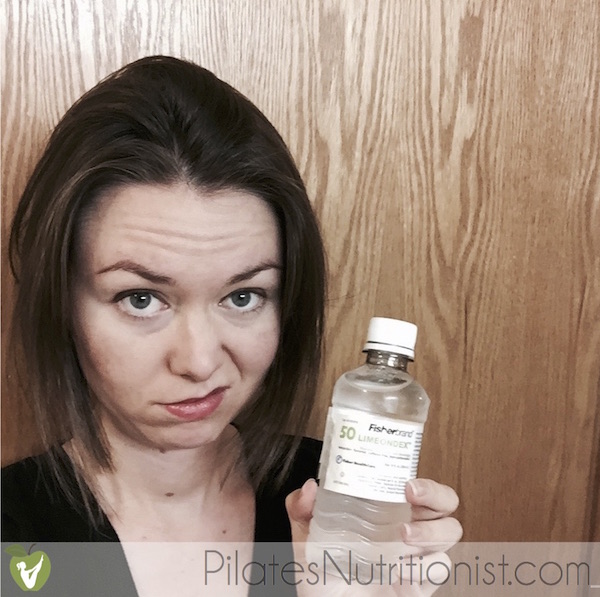

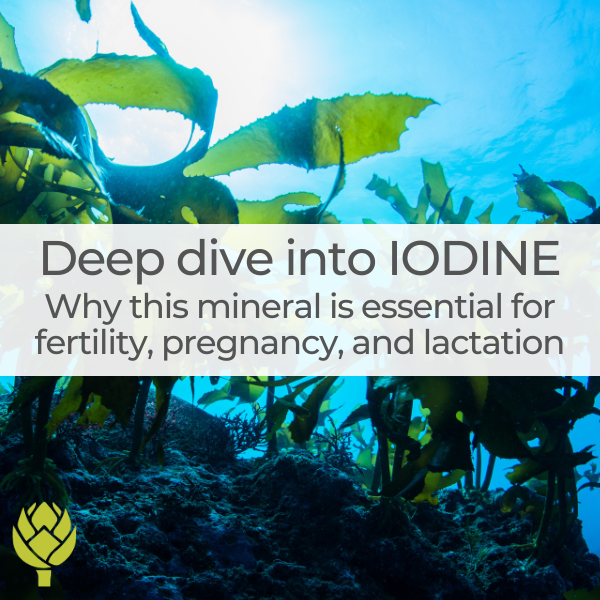
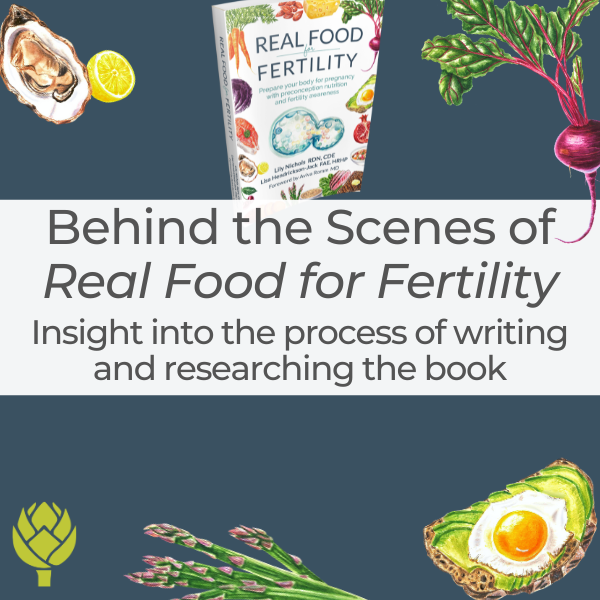
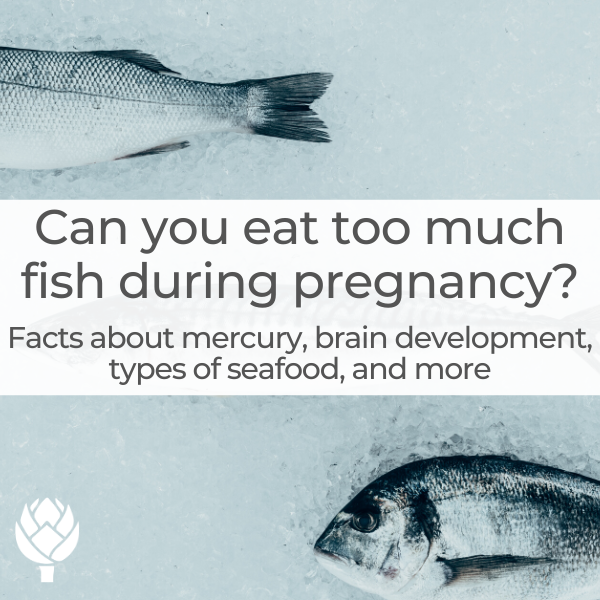
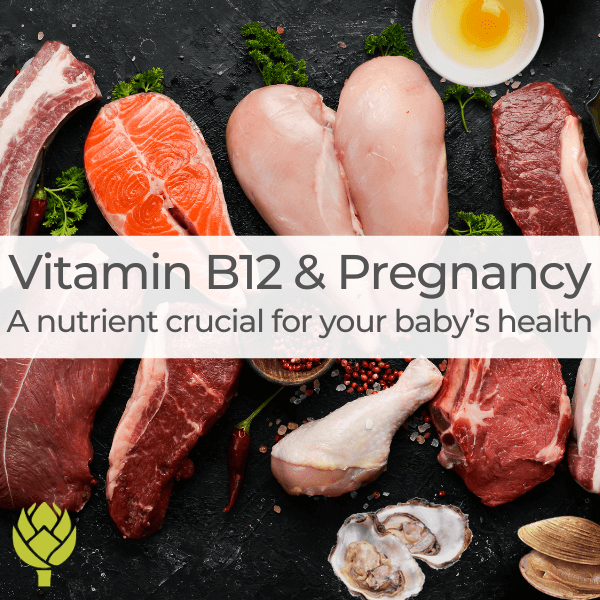



Lily, I like the way you think. I like to do things just out of scientific curiosity too. What you find will likely end up being very beneficial to others.
That said, I HATE the drink… It’s a disgusting slurry! I had it with my first 4 pregnancies, but after my first GD pregnancy, figured I didn’t need the test to tell me for the next 3 pregnancies.
I am interested to hear your results!
Yep – and look at how beautifully you managed your blood sugar with your pregnancies. Regardless of the test, maintaining *normal* blood sugar is best for mama and baby. I’ll be monitoring my sugars at home as well and will compare it with the results of the glucola. I look forward to sharing what I find!
I was looking forward to this post! I did not want to drink it either, so I snuck in jellybeans to eat instead of having to drink the glucola. Then I found out they had to watch me drink it, ugh! So my plan was foiled, haha. I drank it while I had a pocket full of jellybeans. It is disgusting. And yes, I failed the test. AND had to drink it again for the 3 hour test. If I remember correctly it’s even more sugar! 100 grams I think. My Dr’s office did not offer the one without artificial colors.
Yeah, I wish they’d clean up the ingredients on these. I can understand the need for preservatives, but the dyes serve absolutely no purpose!
I, too, drank the nasty drink mostly out of curiosity- and I’m glad I did actually. I am low risk- no immediate family history, only European descent, BMI in healthy range (I used to be slightly underweight by BMI standards), and relatively aware of my food intake. I can tell you for sure that knowing my results snapped me out of Denial Land, even though I wasn’t exactly keen on drinking the stuff. I went back and forth on it, until I finally decided to just do it.
Yeah, it took me a while to decide… hence why this post is a novel!
I failed the one hour glucose test by something silly like 3 points so I had to go back for the three hour which I passed with flying colors. Definitely not my favorite part of pregnancy :/
Yeah, I’ll get into the stats in my next post, but a lot of women fail the 1 hour screening and do just fine on the 3 hour.
I don’t remember having to just sit for an hour. I remember choosing to sit and wait in my second pregnancy. I had the waiting room to myself and my son just pushed a huge dump truck around and around the room. 🙂
I’m in Australia, and because of the unreliability of the non-fasting, one-hour test, my doctor automatically requests a fasting test. It saves having to go back a couple of weeks later and drink that horrible fluid again in the case of dicey results! I’d been Lacto-Paleo/HFLC for 18 months or so when I fell pregnant, and while my thyroid became overactive during pregnancy (I was told I had graves disease and would need to be treated forever, but function returned to normal post-partum), I was exceptionally fit (CrossFit) and considered low-risk. That syrupy concoction was HORRIBLE! 🙂 My results came back fine, and I enjoyed a very easy and comfortable pregnancy. I did find it awkward to include grains in my diet just to make sure my unborn bub was exposed to as much dietary variety as possible in utero. I don’t know if it was worthwhile, because it turns out that we’re still breastfeeding at 15 months, and she still has issues with gluten and dairy in her diet and is allergic to eggs (her Daddy was allergic to eggs and dairy until he was 3).
All the best for your pregnancy!
Yeah, most countries follow WHO guidelines, which call for a fasting test with a different amount of glucose and different cut-offs. I’ll get into it in more detail in the next post in this series. 🙂
hi lily ,i did not try it since i did not get a GTT test yet but id love to try it out of curiosity.its so wonderfull how much i learn from you lily,by the time i become a mum to my first child i wil take all that into consideration
I’m part of the 1% you describe, though I don’t know if I had GD or not. I failed with a 140; I was sick the day of the test and they gave me an immunization mid-way through the test (more stress on the body).
Then, I took the three hour and failed two of the blood draws. I was also on Levothryoxine, which as I understand it, almost always makes women fail — which is why many docs say not to take Levo just before the test. What are your thoughts on medication causing false positives? I was also extremely sick when I took the three hour and took it after a night of about 2 – 3 hours of sleep; I’ve read these can impact results. Your thoughts on these?
I spend my last trimester miserable, constantly thinking of GD and the “threats” to my health and my baby that my providers kept discussing. Despite the fact that I always had normal blood glucose levels two hours post (generally 70-95).
As someone who eats lower carb in general and never eats processed food, I also wonder if that contributed to a false positive. Six months post-partum, I still resent a diagnosis that made no sense and kept me up at night and severely stressed. I still wonder if I had it and if me and my baby are at some risk. I’ll never know because of the lack of guidelines around the one hour and three hour tests (medications, immunizations, illness, fatigue, etc.). I still haven’t shaken the stress of this test, the results, being treated as an “ill” diabetic, despite always having normal blood glucose levels (fasting and post-meals) and being an otherwise very healthy 38 year old at the time.
Bleh no one likes that nasty stuff! I’ve always struggled with my weight and when I got pregnant I was definitely overweight. I have a familial history of type 2 diabetes and have noticed my body’s reaction to eating too much sugar. So I wasn’t surprised I failed my tolerance test. But mine was different! It was a fasting level, my doctor recommended sticking to my usual low carb diet beforehand and has even said she likes a keto diet. She said to really avoid carbs the few days before the test. And even though it is fasting, she said to eat 3 full eggs before I drank it to help. Is this unique? I drank it at home, waited and went in to have my blood taken 1 hour post. Then I had results by the end of my appointment! I failed big time >200. So she said I didn’t need to do the 3 hour test but we would just go ahead and call it from that alone. So far (32 weeks now) I’ve been able to fully control my BG with diet alone and baby is measuring perfect. Expecting a 7.5lbs baby according to their guesses so far. My doc was very encouraging of a low carb diet to work through it. However the dietitian I met with… oh heavens her recommendations were absurd!!!! 300 grams of carbs a day?! I was like I’ll go into a coma… no wonder so many women require medication to control!! She gave me a list of foods to eat and the first carb was diet bread?? What is diet bread?! And then the first fat was diet margarine… yeah I took my free glucometer and left! Thank you for all your wisdom and help!!
Thanks to my naturopath I’m free to eat my own healthy food as long as it has the same amounts of carbs, calories and fats before the test. I don’t know why others don’t do this too?
I’d recommend checking out the section on testing for gestational diabetes in Ch 9 of Real Food for Pregnancy to better understand why the one-time meal tests, jelly beans, or juice (particularly with a finger prick instead of a venous blood draw) are not equivalent to the glucose tolerance test/glucola. There ARE alternatives, but those 3 are fraught with potential problems that can result in false positives or negatives.
Are you able to have any source of protein prior to the 50 gram screening test? I was going to have a few servings of egg whites to help hold me over and hopefully prevent some nausea.
I did the glucola. I hate orange soda (didn’tknow there was a dye free option), but surprisingly, didn’t hate it. To me, it wasn’t bad at all (maybe because I drink soda sometimes?). I did discover that my body delivers a surge of insulin when I eat or drink something sugary, explaining why I feel dizzy and tired if I don’t be careful how much sugar I have and what I had with or before it. I’m glad I did it for this reason, since I’ve always thought I have low blood sugar but was never diagnosed.
You mentioned that your first trimester A1c, as well as vitamin D levels, were good. In part two of this post, you talk about what your A1c numbers should be—but what range is the goal for vitamin d? And how do vitamin d levels contribute to the first trimester A1c predicting GD thing?